Jonas Zimnickas
My name is Jonas and I was born and raised in Burokai, a small village of the north of Poland, situated very close to the Lithuanian border. I was born with a shorter, deformed right leg, which, at that time, was seen as something that should be hidden, as it could be viewed as a punishment from god. As a result, I often felt like an outsider, who did not really belong anywhere, not even amongst my friends and family.
At school I often felt isolated and rejected. While my peers played basketball, I sat on the bench wishing I could join, but I knew I could not keep up and I did not feel welcome. From the age of 4, I had missed a lot of school due to hospital visits that could sometimes last months. When I returned to school I struggled to catch up, which angered and frustrated the teachers and made me feel embarrassed. They thought I was stupid and I felt stupid.
I also found it difficult to connect with other children in my class, I was different and this made me angry and confused. I began to feel resentful, that life was not fair and that I was owed something because I was disabled.
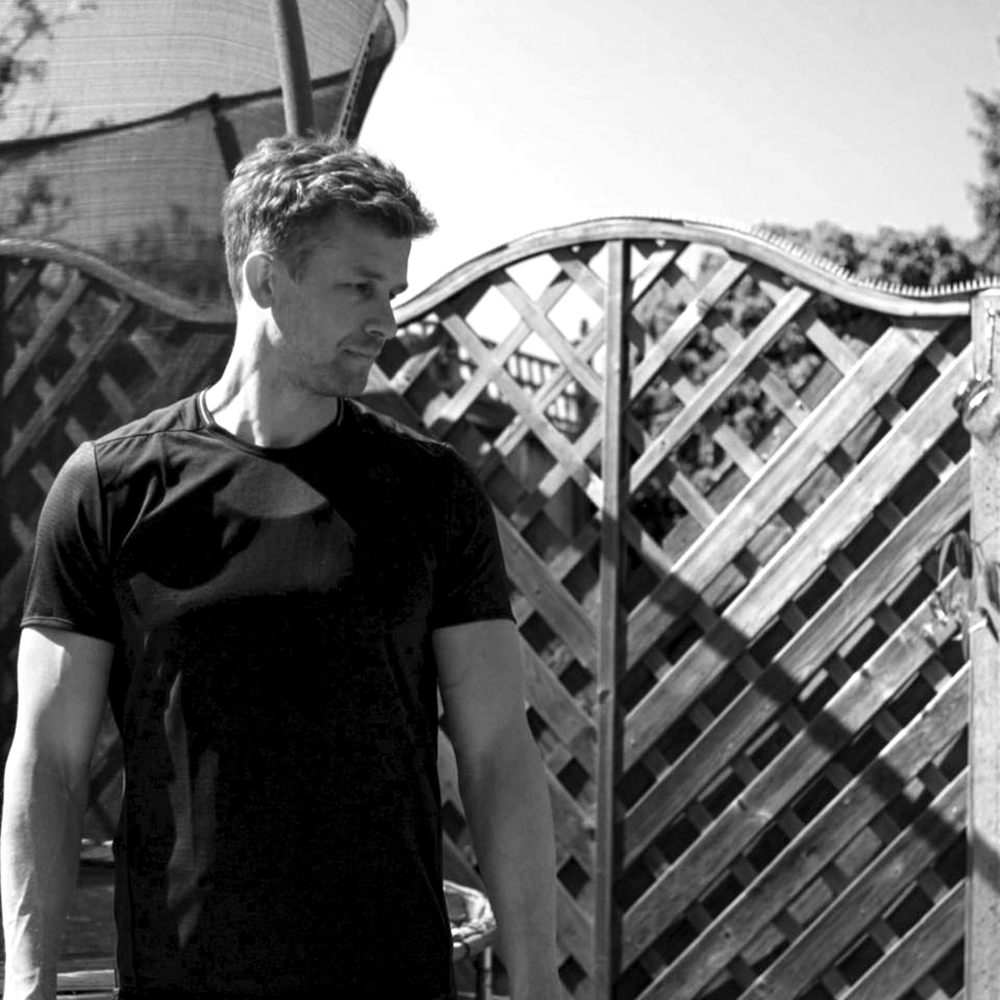
“As I was born with disability, I felt life has to compensate me somehow.”
My parents were not interested in my education as their intention was that, as their only son, I would take over the farm. I worked hard on the farm from the age of six, every day after school and at weekends, but it was a great disappointment to them that I was disabled and I think they felt ashamed. They would take me to hospital, but I did not feel their love. I felt uncomfortable at the prospect of a life on the farm, I was unhappy and I did not feel I could meet their expectations or ever be happy in Burokai.
Where I lived drinking heavily was common and by the age of twelve I thought that maybe alcohol could be the solution to feeling miserable. I was still behind at school, I did fit in and would regularly fight with other boys. I began drinking regularly, sometimes until I passed out, it was an escape from my thoughts, but I also continued to attend school and work on the farm.
By the time I was 19, I was known for drinking and being a waster. My sister suggested I see a doctor in Warsaw, about my leg. Maybe it was my disability that was making me drink and feel so unhappy? The doctor suggested amputation and although I did not have support from my friends and parents I went ahead.
Amputation was a good decision, I could wear a more modern prosthesis, which halted the deterioration to my health that could have led to permanently being in a wheelchair.
My experience in the hospital was also good. Firstly I was unable to drink, and I liked that because I hated drinking although I did it every day. Secondly I gained great perspective and gratitude. I saw people around me who had had accidents and two people died. This opened my eyes that I was fortunate and that life could be worse. On the advice of my physiotherapist to play sport I began playing wheelchair basketball, which I loved and I was hopeful that I could be happier in the future.
Unfortunately when I returned home, my drinking increased. I was still unhappy, angry, resentful and I blamed everyone around me for the way I felt.
At 22, I thought the answer was to leave the farm. I had a cousin in the UK, so I fled to him, hoping to leave behind my troubles, misery and uncontrollable drinking. In England I once again felt isolated and lonely and continued to drink. I worked cleaning toilets in a school and washing dishes in a pub. My only English words were hi and bye, so it was not possible to integrate or get better work.
After two years in England I had learned English, via a course, so I could finally communicate better, and after continuing to play sport in England I applied for and got a job as a fitness instructor in the school gym that I had once worked in as a cleaner.
Three years later, aged 25, despite having a better job, language skills and a seemingly better quality of life I was still miserable and drinking heavily. I was beginning to realize that the problem was not external, as I had believed, the problem was me and I hated myself and felt hopeless. I would drink till I passed out, I would lie, I would steal, I would fight with strangers and it was not who I wanted to be.
I began to have suicidal thoughts and I knew I had an alcohol problem. I visited doctors, but they did not seem to know what to suggest, other than to “cut down”. One morning I woke up after partying and fighting with two black eyes, no money and no desire to carry on. I looked in the mirror and knew I had run out of options. I was living a lie.
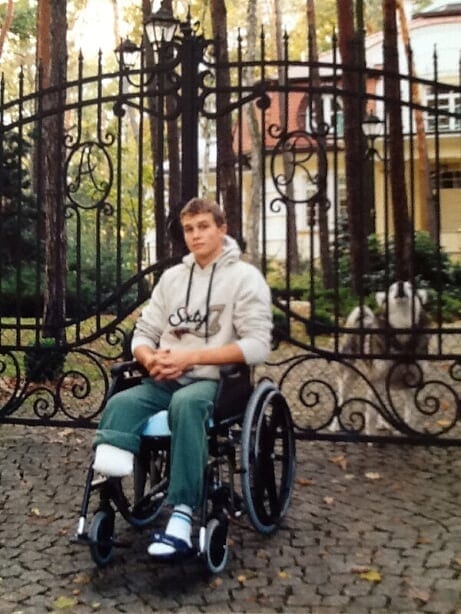
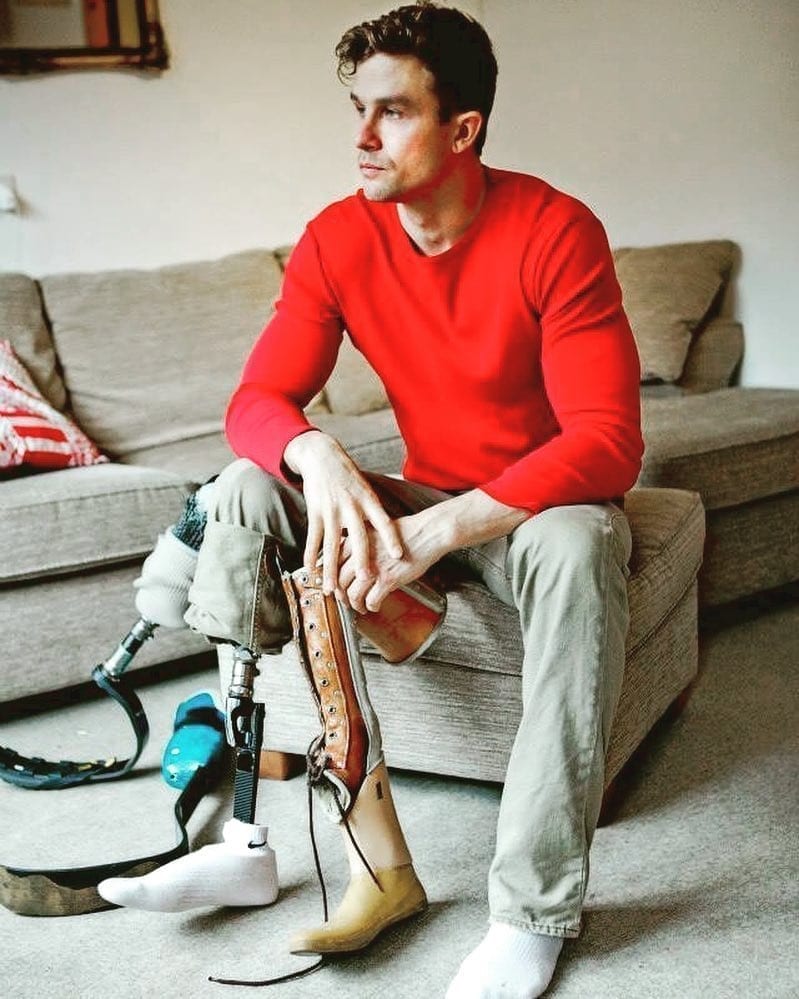
“I looked in the mirror and knew I had run out of options. I was living a lie.”
In that moment I started planning my ‘life exit’, suicide. Growing up, I had known many people who had committed suicide. It almost seemed like an acceptable way to get rid of the problems. I did not know anyone who had overcome serious mental health issues. It seemed that people went crazy and either went to a mental institute and were never spoken of again, or they hung themselves. I saw this as the way out, to get out of this life.
Laying in bed, as I heard my housemate leave for work I decided that the best solution would be to slit my wrists. I went onto the Internet to search for instructions, but something made me search ‘alcoholic’ first. The number for a twelve-step programme helpline popped up. Although I thought twelve-step programs were for homeless people or only in movies, there was nothing to lose, so I called and fortunately, someone answered. For the first time, I was honest about how I felt and what I was doing. It was unbelievable to me to be so easily speaking with someone that I could relate to, that understood, that had been where I was and all without the fear of being judged. That evening I attended a meeting a few minutes walk from my house.
From my first meeting I stopped drinking totally, I had never thought this was possible. I understood from the program that I had been using alcohol as pain relief and that the programme, meetings, and a sponsor could help me to understand and heal the pain and thinking that led to drinking. I knew that I could never drink again, which was both scary, but also a relief, I would do anything not to drink and leave this part of my life behind.
When you have a pain in your arms or legs, you can easily visit a doctor to diagnose your problem and hopefully treat and cure you. I did not understand that there could be the same help for the mind. As a man, in my culture, when it comes to your mind, your feelings, your emotions, it can feel impossible to tell anyone and easy to believe that the feelings are permanent, there is no solution, no way out.
“Life does not owe me anything, this situation was for a reason.”
For the first time, in the program, I felt part of something, safe and accepted. I had not felt so safe since sitting on the lap of my grandma as a toddler. After my first meeting, I cried hysterically when I got home, I have never cried so much in my life. From that moment I attended regular meetings and followed all the advice given to me. After a while I could attend and enjoy parties sober. I celebrated Christmas and Easter and family gatherings in a sober state of mind, it was unbelievable.
“I had tried to find a way out of my misery, fear, anger, depression, and anxiety through alcohol, but it is not the answer.”
I had tried to find a way out of my misery, fear, anger, depression, and anxiety through alcohol, but it is not the answer. The answer was in me, I just needed help and support to find it, to be honest, and to totally erase alcohol and drugs from my life.
After 18 months sober I started sprinting. I now had the energy and a desire for new challenges. I progressed quickly and incredibly, was soon was training for the 2012 London Paralympics. When I trained with the athletes of the GB team, I saw the philosophy behind athletic success, felt the buzz of finally being part of a team and learned to develop self-discipline. I was inspired by the coaches, the athletes, the environment and could not believe that this was me, the boy who watched on the bench, miserable, in my leather and wood prosthesis, now standing alongside world-class athletes, wearing a blade. It was almost scary to be so far away from where I had started. I loved learning about the body and what it could do and so I decided that I would study and try to qualify as a personal trainer.
Two years sober in 2010, I met my wife. In 2012 I became a dad for the first time and after leaving sprinting in September 2012, I began competing in, and winning fitness modelling competitions in the UK, and launched my own personal training business.
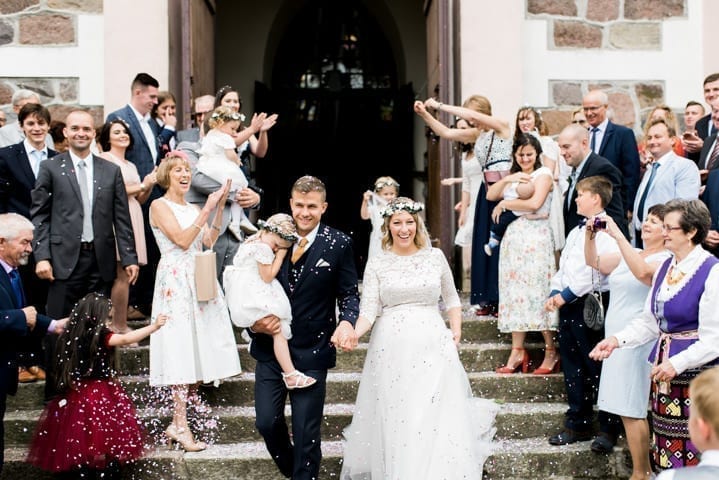
In September 2018 after growing my business, having two more children and getting married, my wife and I decided to move abroad. We loved the Mediterranean and had always dreamed together of living simply, less materialistically, closer to nature and giving our children a healthier lifestyle. We chose Alaro, a village of 5,500 people in the mountains of Mallorca.
As with all big changes, you learn a lot about yourself. When we arrived in Mallorca, it was challenging, as we expected. We did not know anyone in Mallorca or the language and we did not have jobs. But, we had a dream and we were determined.
Looking back, I can see that in England, once I became sober I became an overachiever. My gratitude at being sober never wavered, but I was always striving to prove myself, to run faster, to earn more money, to win more competitions and it was not making me happy. I was putting myself under a lot of pressure and kept myself, unknowingly, busy, distracted, in a constant struggle and fight, which was a very familiar feeling to me, from my childhood. I had also been heavily reliant on external praise and support, which I lacked as a child, so naturally I looked for it as an adult. Unfortunately it became my driving force, blinding me to other things, which I only realised once we arrived in Mallorca.
“My gratitude at being sober never wavered, but I was always striving to prove myself, to run faster, to earn more money, to win more competitions and it was not making me happy.”
This lack of distraction and external praise and support initially led me to an acute period of depression in Mallorca and for this first time in 11 years, thoughts of suicide returned. Without a busy work life I felt lonely and useless. Fortunately I now knew that help was available and I sought it quickly. I had so wanted freedom, to live simply, without rushing and being constantly busy, but now I had it, it was terrifying. Within three or four months I was more aware and open-minded than ever. I discovered more about how my past was affecting my present. I learnt that I needed routine, structure and purpose. I began meditating, listening to inspirational podcasts and communicating, honestly and regularly with my close friends.
I want to slow down and relax, but it does not come naturally to me, so I have to practice. Fortunately, over the years I have learned to ask for help, to choose the right people to support me, and I also have a role and job of supporting and helping others, which fulfils me.
I have opened my own fitness and wellbeing studio now, in Alaro, Mallorca, where I help people to create healthier happier bodies and minds.
Aged 37 I have now been on this journey of sobriety and recovery for 12 years and every year I am learning more about myself, about others and how to live simply and with contentment.
“… I have now been on this journey of sobriety and recovery for 12 years and every year I am learning more about myself, about others and how to live simply and with contentment.”

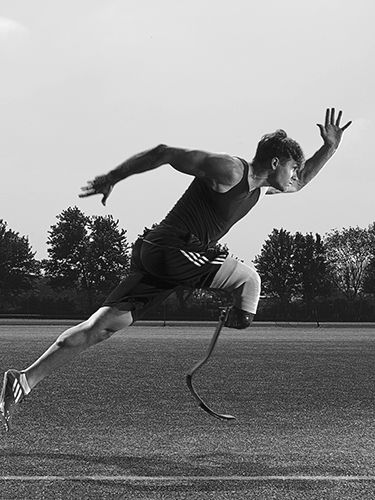
I wouldn’t change anything in my past because my experience creates me, my beliefs and who I am today…
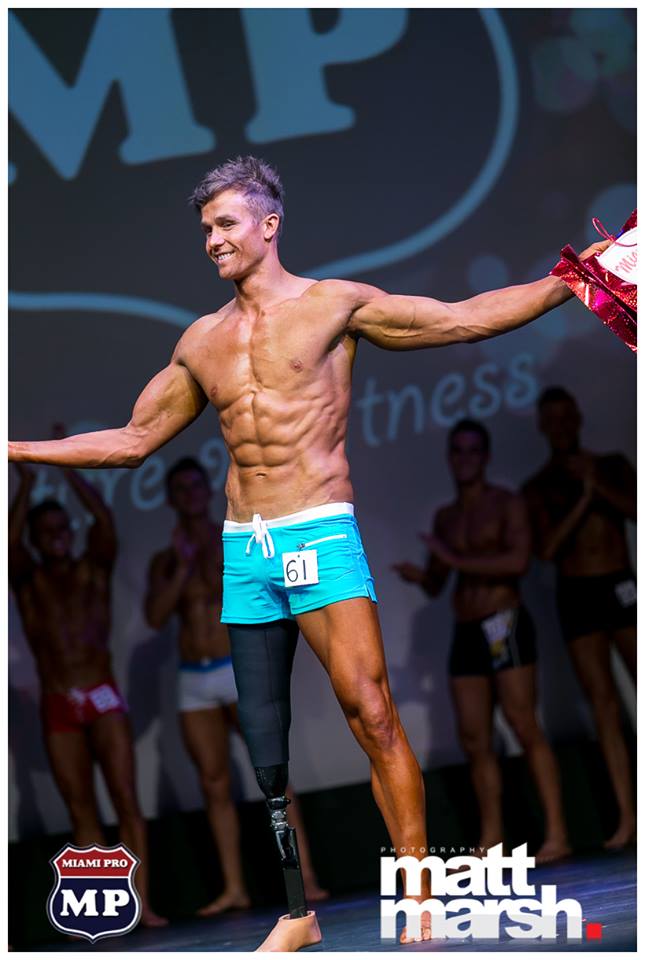
Remaining 5 short answers to questions:
If you could ever change anything of your life, what would it be?
I wish I had spent less of my life worried about what people thought of me. Until about a year ago I was obsessed with other people’s opinions and I regularly had conversations with myself, analyzing my behavior and the reactions and imagined thoughts of others. Finally, I am giving up on this. I have about 10 people who are always there for me, anytime, anywhere. This is enough. Those are the people whom I also care about and I try to spend quality time with them as much as I can.
What is the biggest struggle for you pursuing a career in sports?
Consistency and self-belief are the biggest struggle. I think everybody struggles with that. We are humans and we are inconsistent. We often have strong desires that will not benefit us long term, but I am learning slowly to believe in myself, not take everyone else’s opinions and actions personally and that to be consistent, you must take one day at a time, not make grand statements to yourself that you then cannot see through, because it feels overwhelming.
What gives you inspiration and energy every day?
“The realisation that we are only on this planet for a short period of time and the belief that our purpose is to be happy and help others to experience more happiness.”
When we act with love towards ourselves and others, great things happen. We can heal, we can help others heal and we care more about ourselves, our community and our environment. For me, it is important to cultivate a belief in something bigger than yourself, whether that is love, a god, or some other energy.
As a father, I am motivated and inspired by my children, I want to set an example, to show them, love, to teach them resilience, independence and build their self-esteem. I hope to spend as many years as possible with them.
If you were not in sports, what else would you like to do?
I have always been interested in people, (I have spent a long time watching and analysing them) how they think, how they can change and transform themselves. I would love to interview people about health and sports topics on podcasts and on radio.
What is the biggest struggle/fear?
Living with my mind. I am usually a very positive and enthusiastic person, but at times I can suddenly become very negative, especially when I am avoiding taking an action, which has to be taken because I am scared. In these moments I am flooded with fear, indecision, frustration and anger. The weather also contributes to my wellbeing and affects my mood a lot, but the Mallorcan sunshine is helping! I also need to learn to keep my self-control. Routine keeps me in check and I try to stick to a simple regular morning routine.
What was the biggest risk you have ever taken and what did you learn from it?
Taking the decision to amputate my own leg without support from my parents and friends. I learnt that I was quite lucky and in a good position although I felt sorry for myself for many years. In the hospital I saw many people worse off than me, even dying. This helped me to understand how precious my life was and to focus on what I could do, not on what I could not.
What one piece of advice would you give to others?
Never accept living in misery. It is very toxic. Seek help. In my experience it is important to choose the right people or professionals to share your fears or demons with. There are people who can help, no matter what, no matter how big you think your problems are.
Often I hear people say, “but my situation is different and cannot be resolved because…” Trust me, it is not the situation, it is your beliefs that are the problem. Your belief that it cannot be better, that the situation cannot be improved or that you do not have the capacity or strength to take the required action to improve it.
For many people, the feeling of unhappiness and struggle is a more familiar and therefore becomes a more comfortable place to live, despite it being painful than a place of freedom and happiness. How will they live without the restrictive walls that have always been there? It can be scary to imagine a life so different from the one you have always lived.
Many people do not think that they deserve better or that life is meant to be happy, but there are so many ways now get help and to seek a better life.
Problems will never get better without action and in my experience until you allow someone to help you, or admit to yourself what is really inside you and how you really feel, you will see no improvement.
Believe me or not, there is always somebody who can help you and who can in fact benefit from you and your stories, even when you think you are crazy!
“…And if you want to achieve what you are aiming for, start from yourself, keep working to improve yourself. Stay patient. If it is meant to be yours, it will be, if your motives are right. Right things will always happen and come your way…”
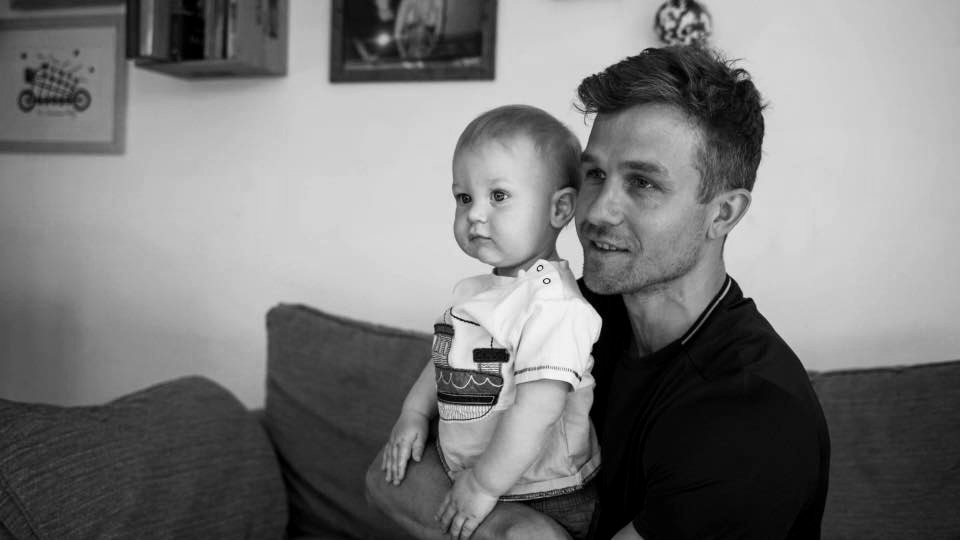
What are your future plans?
I develop my studio in Mallorca, to create a community of similar-minded people who want to join me in moving up a similar path. I would like to help others through fitness and wellbeing activities to improve their level of wellbeing, so that they can experience more happiness and experience less loneliness.
Nowadays we go from our homes, to the car, to work and back home without spending quality time face to face with other people or out in the natural world. Repeating that cycle daily keeps us in isolation from those around us, even those we love. I would love to create and be part of a community where we honestly connect, spend time having fun and help and support each other.
I would also like to travel, to see more the world, to see how other people live and to share those experiences with my children.
What concerns you most on the global stage and how we could overcome?
Firstly, climate change. Humans are killing the planet and even though we are educated enough, we are still in denial and do not want to respond appropriately, especially governments and large businesses, who are ignoring their responsibility to act, or in some cases being blatantly dishonest about their role and capabilities to combat climate change.
Secondly, our addiction to smartphones and social media. I believe that there is huge damage being done to the younger generations, to their self-esteem and self-expectations, which is leading to anxiety and depression. We are too reliant on our phones, they prevent us from being present with the natural world and the people around us. I am not saying we should stop using them, or dissociate from them all together but rather we should think wisely about how much and when we use them.
DETAILS
Name: Jonas Zimnickas
Industry: Sports
Country: Spain
